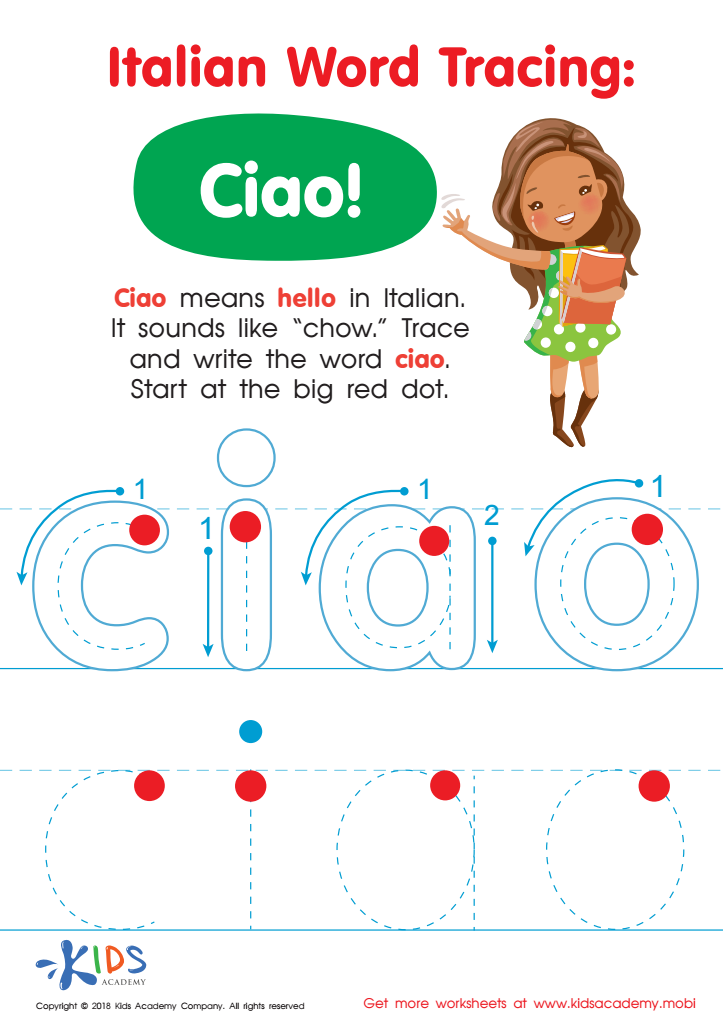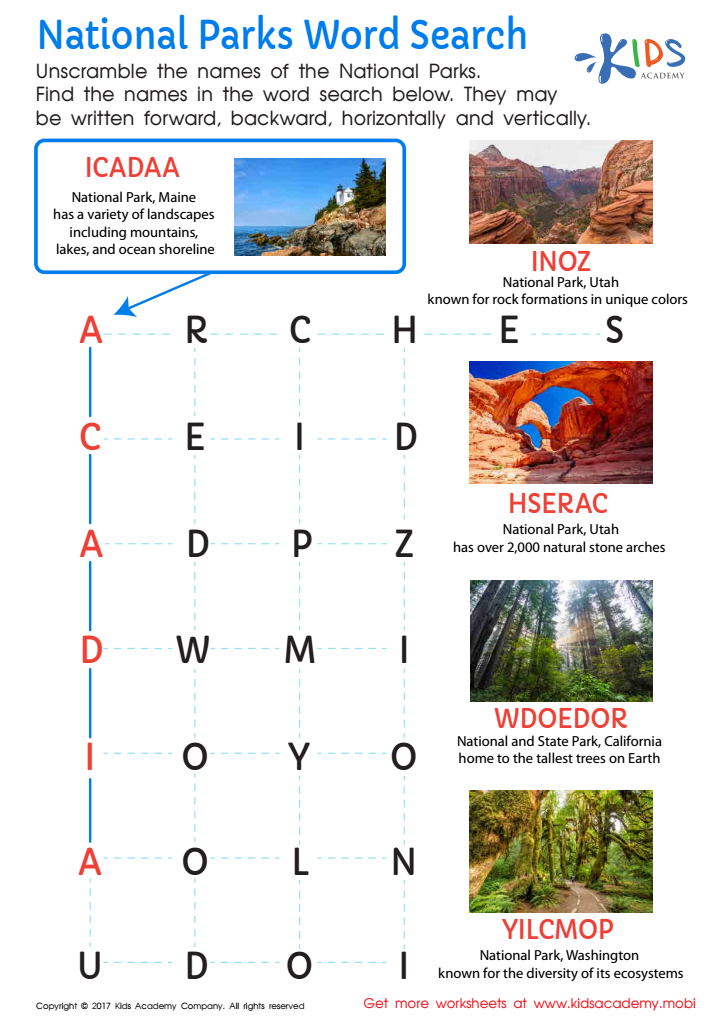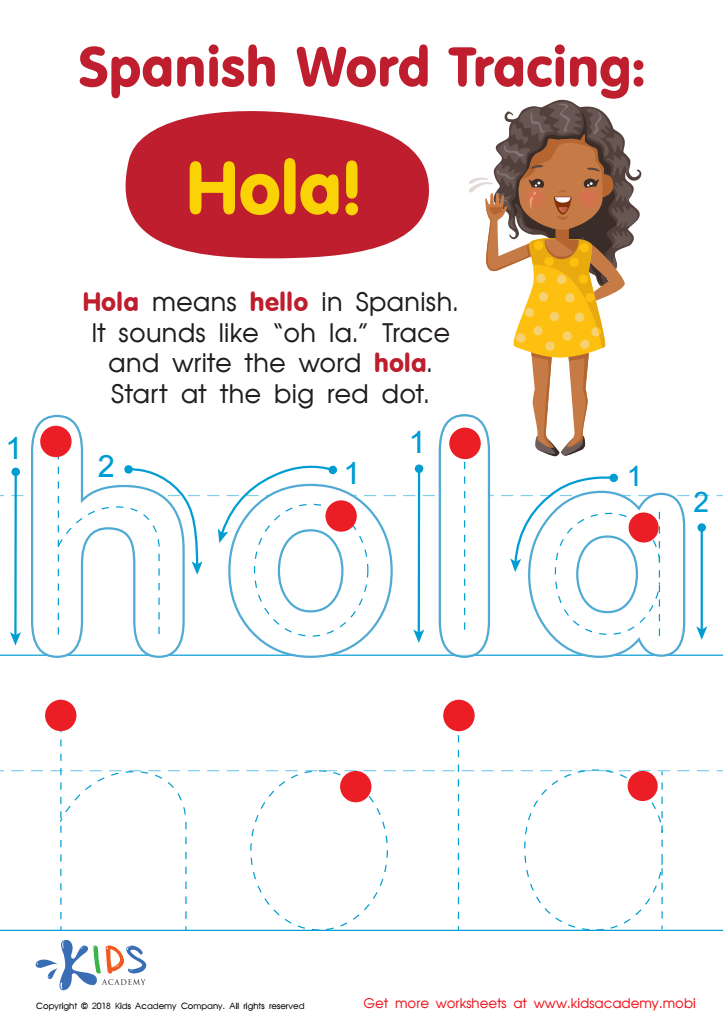Word Recognition Normal Governance and Civics Worksheets for Ages 4-9
3 filtered results
-
From - To
Introducing our specially designed "Word Recognition Normal Governance and Civics Worksheets" for children aged 4-9! These engaging resources help young learners develop essential literacy skills while exploring important concepts in governance and civics. Each worksheet focuses on word recognition, enabling kids to identify and understand vocabulary relating to democracy, community, and leadership. Interactive and age-appropriate, these worksheets promote not only reading skills but also an early understanding of civic responsibilities and rights. Perfect for classroom activities or at-home learning, our worksheets provide a fun and educational way to inspire future citizens. Let’s nurture a love for reading and civic engagement today!


Italian Word Tracing: Ciao Worksheet


National Parks Word Search Worksheet


Spanish Word Tracing: Hola Worksheet
Word recognition is a fundamental skill for children aged 4-9 as it lays the foundation for literacy and effective communication. This stage is critical for cognitive development and intellectual growth. Moreover, incorporating governance and civics into this learning helps children understand the world around them, promoting critical thinking and social awareness.
Teaching children about governance and civics using age-appropriate vocabulary and concepts fosters early engagement in democracy and civic responsibility. It encourages young learners to recognize and understand the words and phrases associated with these themes, such as "community," "rules," and "sharing." This recognition enhances their literacy skills while providing a context for real-world applications.
As children learn to read and recognize these words, they develop essential skills for academic success. Engaging with civics content also builds their ability to think critically about social structures and promotes key values, such as empathy and cooperation.
In fostering both word recognition and civics education, parents and teachers can create a well-rounded foundation in literacy that helps children navigate their communities, encouraging them to become informed, responsible citizens as they grow. Prioritizing these elements helps cultivate a generation that values engaging with and understanding their society.
 Assign to My Students
Assign to My Students









